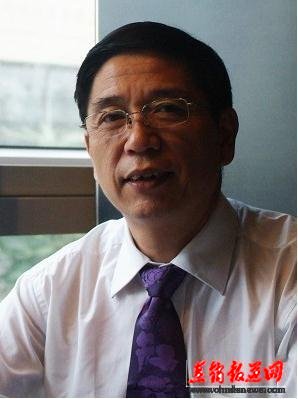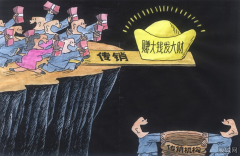2018-06-14 16:00
Directly create a consumption scene of "online shopping mall + offline experience"

[Direct News Network, Beijing, June 14] (Information Times) Mall transformation is the biggest change in direct sales marketing model in 2017. This change may affect the development of the direct sales industry in the next decade. At the 14th World Chinese Direct Marketing Conference recently held, the Morning News Media Strategy Research Center, a third-party organization of the direct selling industry, released the "2017 China Direct Selling Industry Development Report" (hereinafter referred to as the "Report"). The report suggests that with the advent of the sharing economy, direct marketing will become a social sharing mechanism. Therefore, the direct product companies need to further change the scene of product display, starting from the current line to the "online + offline" combination, and then to "online + offline experience shop."
The price has gradually become transparent and the enterprise has opened up online channels
Today, the emergence of fragmented lifestyles and the opening up of the Internet platform have brought a tremendous impact on the way to earn high prices for products. And specific to the direct sales industry is the emergence of the marketing mode of the mall. The report shows that in 2017, the performance of 90 direct selling companies in China reached 220.55 billion yuan, and the annual growth rate reached 6.55%. In addition, according to the report, last year, the Chinese market has become the largest regional market for nearly 10 major international direct selling companies, but the market concentration has dropped to 56%, and small and medium-sized enterprises usher in a breakthrough space.
The reporter sorted out the "2017 China Direct Selling Industry Performance Statistics Report" and found that in 2017, the sales performance of dark horse enterprises such as Suzhou Green Leaf and Tianjin Casteyuan was "a sudden rise" compared to the growth of old straight enterprises, achieving a 12-fold increase over the same period of last year. The "miracle".
It is understood that the reason why the above two direct sales companies can become dark horses in the industry is due to their respective adjustments to the original value chain and cutting off the rate of increase. For example, Suzhou Green Leaf achieves customer goals through its direct sales platform and then diverts flow resources to e-commerce platforms. The daily necessities of its electronic store are affordable, dispelling the consumer's idea of "direct selling = high price", and the market is rapidly starting to promote the company's performance growth rate of 1233% last year.
“As the Internet brings more information to consumers, prices become more transparent in the minds of consumers. The model of relying on middlemen to earn the difference will not exist later. And the online mall can be set up for direct selling companies. The competition brings advantages.” The direct marketing researcher in China told the reporter that the strength of the direct selling model is socialization, which is a typical representative of the sharing economy. The mallization and product diversification will undoubtedly maximize the social effects brought by the direct selling company. "In the future, the profitability of the direct enterprises should be placed on the mall instead of the direct sales sector. The direct sales role is more to gain customers and divert traffic."
Offline stores can transform into scene-based consumption in the future
Although some of the current direct selling companies have tasted the “sweetness” from the new online sales channel through adjusting the value chain, this does not mean that the marketing model of the direct selling industry will remain unchanged in the future. The content of the report pointed out that the scene of the direct sales company's product display needs to be changed from the offline, to the current "online + offline", and then to the future "online + offline experience shop".
“In the past 20 years, the industry has promoted the model of shops and supply of salesmen. Today, we find that it is a tragedy for direct selling companies to open stores because the stores have basically become the burden of the team.” Yu Lu said that in the future, the stores of direct sales companies Must provide a scene of consumption, so that consumers can complete all the social activities in the store. “If the products sold in the next store are fast moving consumer goods, especially consumables, fresh food, etc., then the factory and the store also need to be combined and presented in the community.” The beer factory, when consumers want to drink alcohol, red wine, or fruit juices, can be a worker at the store and do it by themselves, because the stores already provide smart devices and solve the consumer's desire as a worker. “In the next decade, we will enter a variety of store consumption scenarios, such as planting land in the store, producing vegetables in the store, making a pack of whole grain flour in the store, and soaking up a cup of tea.”
This reporter learned that, at this stage, the scene-type consumption of direct selling companies has been gradually presented. Among them, Kangmei Health Management Center will implement the model by integrating experiential marketing, scenario marketing, and expert marketing. At Health America Health Management Center, as long as the user lays on the massage chair of the Chiesung Meridian, the massage chair will generate a targeted massage program based on the test results, allowing the user to enjoy a comfortable massage treatment. In addition, the user can create a personal health file through the "Kangmei Health Manager APP." The file is uploaded to the cloud database and stored permanently. As long as the user turns on the mobile phone, they can learn about their own and their family's physical health whenever and wherever possible. The direct-sales giant Amway also upgraded its customer experience by upgrading the experience of offline stores, the construction of e-commerce platforms, and the improvement of logistics distribution and after-sales services.
|

